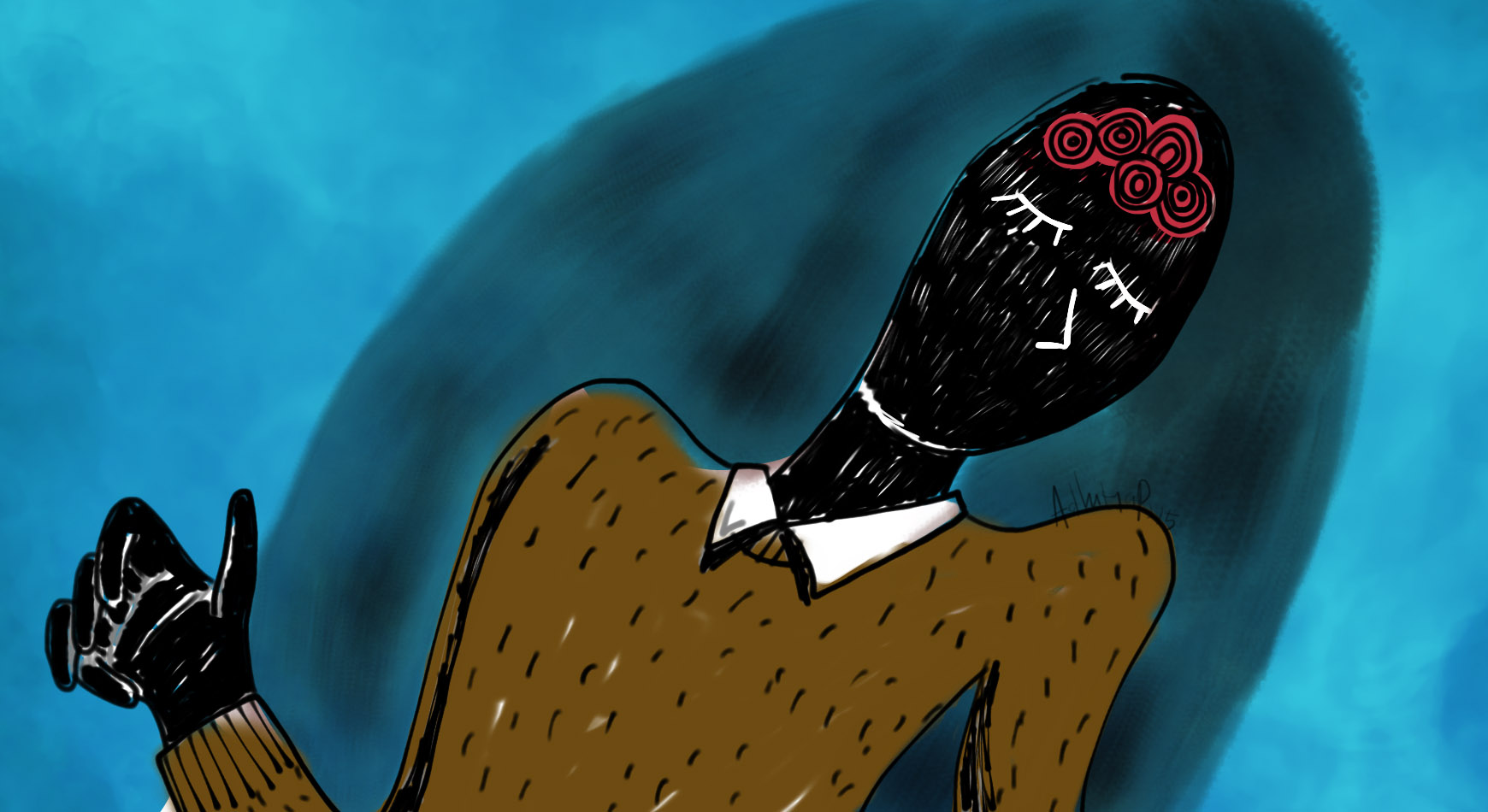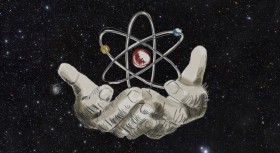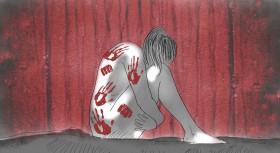Hello, I have depression.
I never thought about it until I was was diagnosed with Major Depressive Disorder months after turning 21. I thought I was too young, but then I learned that even children can experience clinical depression.
Depression chooses no age. Some experience it only a few years before death, some during midlife, and others have an earlier start. Why? The human brain is quite a puzzle.
I was told I have two types of imbalance: a hormonal one and a chemical imbalance in the brain. It was straight out of the books like a chapter from Sylvia Plath’s The Bell Jar, a young person eager to take on the world, only to find out she cannot handle it. Plath’s life ended with her head inside an oven, but I have other plans for mine.
Twenty-one was a tough year. The Philippines was in some kind of trouble, as usual. I started working only a week after graduation. I was lured by promises of public service and a hefty salary. Everything went well for the first few months until the job felt like a beating. Perhaps it’s true, work won’t feel like work if you truly believe in what you’re doing.
The job title, salary, and stability were no longer worth the stress: mental and emotional, a dangerous pair.
I left and soon fell through a hole. I went home to my parents and never left for 3 months straight. Food became unnecessary, so did sleep. My body felt empty yet loaded; I was anchored to my bed, with my face hooked to the ceiling. Nightmares came even during the day.
I couldn’t force myself to read or finish sentences. I feared the outdoors and my mind was mud. I had no answers for the crying spells, the constant anger and guilt. Tomorrow better not come, I wished.
My mother then took me to a doctor. It was a house, unsuspecting of all the brainwork inside. It was a long day of digging through my childhood, personality, and experiences. At the end of it, I learned about my depression. Later on, through diagnostic tests, I learned of my hormonal problem.
My mother, perhaps ashamed, wanted to keep “it” a secret – a secret so vile not even my brother can know. The shame rubbed off me and I soon felt trapped with “it.”
Money in my depression
Depression doesn’t come cheap.
In the Philippines, not everyone has access to healthcare. Healthcare is also focused on the physical, leaving mental health in the shadows. You want to be healthy, you need money, that’s a harsh reality for many Filipinos.
Mental health remains taboo among several households, and not all Filipinos can afford professional help, nor can they can access the right information.
Treatment means doctor’s appointments, with each visit costing P500 (about Rp 146.000) – cheaper perhaps because the clinic is in the province. My Manila-based psychiatrist charges P3,000 (about Rp 873,000) per visit, alongside a therapist charging P1,500 per session. In the initial treatment, there could be one or two visits per doctor per month.
My days end with popping a pill, an anti-depressant costing around P120 per pop. That’s P3,600 per month. Medications for hormonal imbalance cost over P1,000 per month. This totals to more than P13,000 per month, with fees going lower as the dosage and appointments are reduced.
I don’t want to burden my aging parents with such bills, but with a monthly salary of less than P20,000, I clearly cannot afford this treatment on my own right now. I cannot even begin to imagine how less fortunate Filipinos will be able to get around this.
One myth about depression is that it’s a “rich man’s illness,” a stereotype insulting not only to people with depression but also to lower-income Filipinos facing the same battle, albeit with greater difficulty since they lack fair access to information and services.
Statistics on mental health remain scarce since not all Filipinos manage to get diagnosed, and not everyone is willing to talk. But with the stigma, can you blame them for keeping mum?
In the aftermath of Super Typhoon Yolanda (Haiyan), many Filipinos left to live in extreme poverty experienced mental health problems, the World Health Organization (WHO) observed. This, of course, is only part of perhaps a larger yet silent population. While healthcare remains a privilege rather than a right, many Filipinos may continue to unknowingly live with depression.
It also seems that many Filipinos cannot distinguish depression from bipolar disorder, schizophrenia, post-traumatic stress disorder, psychosis, among other conditions. Lack of awareness not only leads to discrimination, but also to delay of treatment – hence, possibly worsening one’s condition.
Some cases end with suicide.
Support
Three months later, I left my parents’ house and began job-hunting. I landed a job which helped me stay on track. Working a job you really love is therapy in itself. I finished my treatment after a year, but relapsed eight months later. I’m now back to square one, as if my body and mind are half-paralyzed.
I want to empower others like me, yet I cannot come out and say: I have depression and it’s okay. It’s not like having the flu where I can call in sick for work. A secret advocacy, how ironic.
For those who live, love, or work with people with depression, remember that each person has a different story, the science of their depression could differ, the experiences and triggers vary, but the point remains: everybody deserves care and understanding.
It’s not laziness, arte, or the blues. It’s a health condition and we’re trying our best to conquer it.
In 2007, WHO reported that the Philippines only allotted 5 percent of its total health budget for mental health – 95 percent of which goes to mental hospitals’ operations and personnel. There is also a lack of mental healthcare professionals.
In the coming elections, the next Philippine leader might want to finally prioritize the mental health sector and address its lack of funding. Treatment, after all, is not only for the moneyed.
Although the Department of Health signed a National Mental Health Policy, the Philippines does not have a national mental health law bearing real teeth. This is why advocates are pushing legislators to pass the National Mental Health Act, which aims to establish a “nationwide multi-sectoral collaborative network for the identification and prevention of mental illness or disability and the management of mental health problems.”
You cannot tell who has depression just by looking at them. Some have a resting bitch face, others are all smiles. Some of us have jobs, some have children, some are in school, some are volunteers, and the list goes on. We are capable of maintaining relationships with people we love. We can smile, laugh, and have a good time. We don’t radiate sadness 24/7 and we do not demand sympathy – something which sometimes we are also incapable of.
There are days, however, when our minds and bodies are unable to function as smoothly as they normally do. Sometimes it’s days; sometimes, weeks.
It would be great to someday wake up to a Philippines where we no longer have to keep our mental health conditions to ourselves, afraid of shaming our families or tainting our school or employment records. Until then, here’s a big salute to all the advocates who fearlessly push for our rights. I wish to join you someday.
Nene Perez is a pen name. The author chose not to disclose her real identity for privacy reasons. The author is a working woman, living alone in Manila. She advocates for the passing of the Mental Health Act.
This story was first published in Rappler.com, a Manila-based social news network where stories inspire community engagement and digitally fuelled actions for social change.








Comments